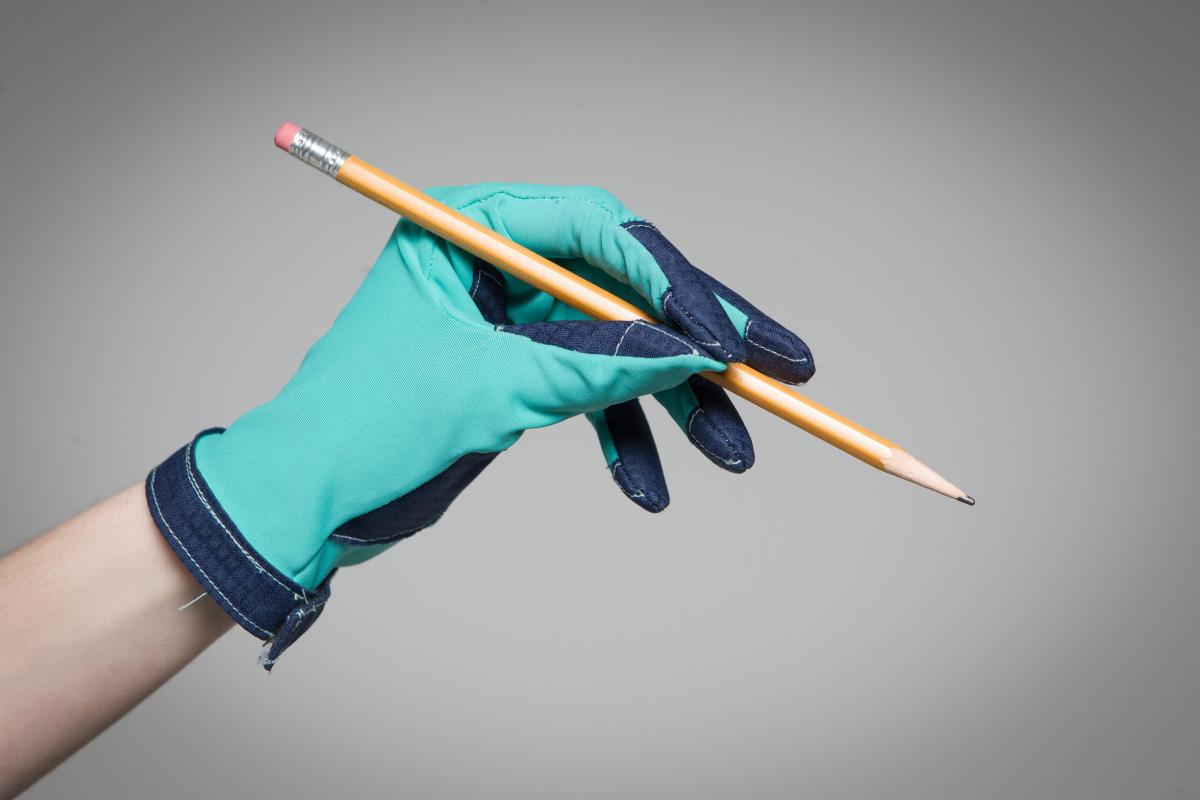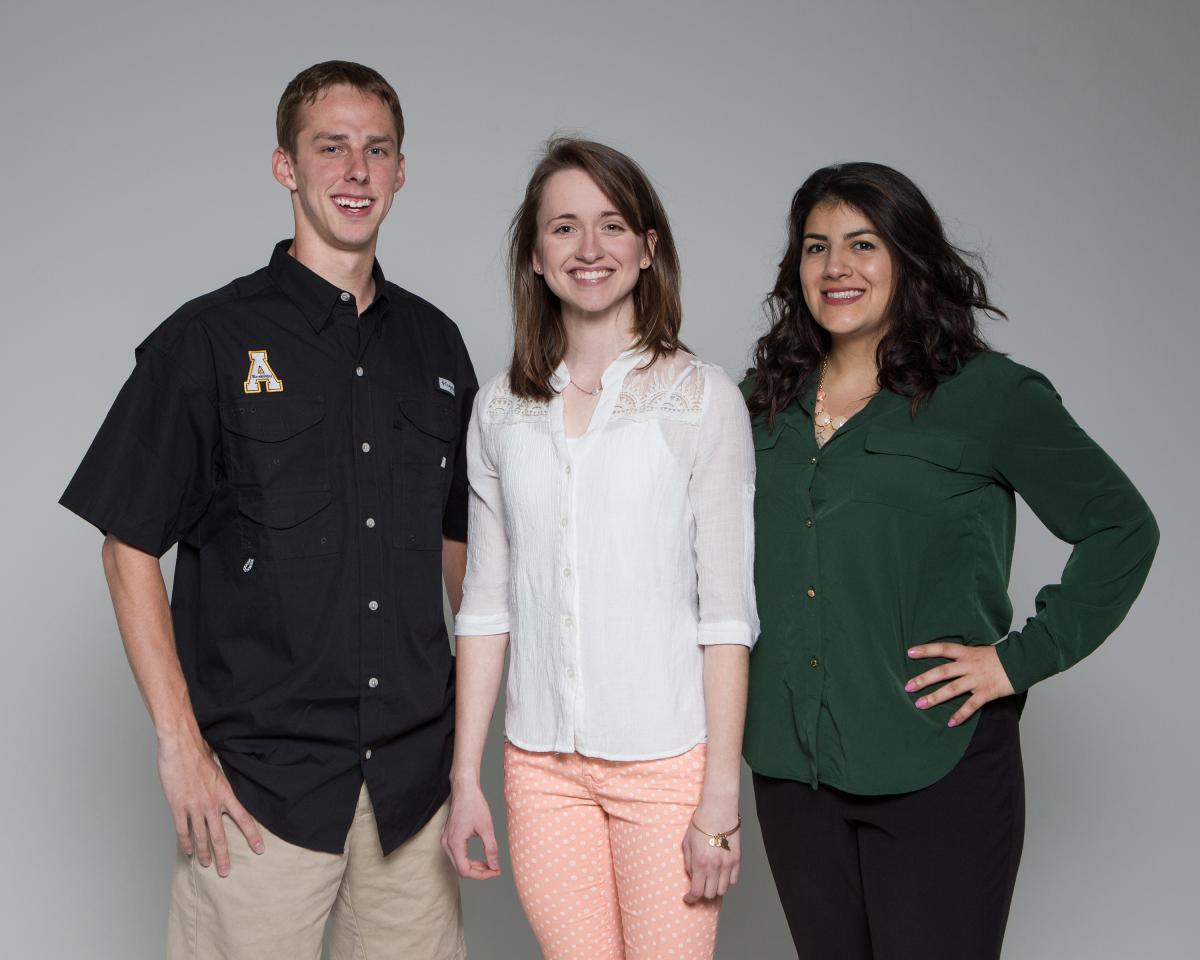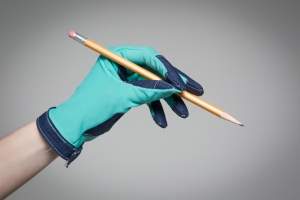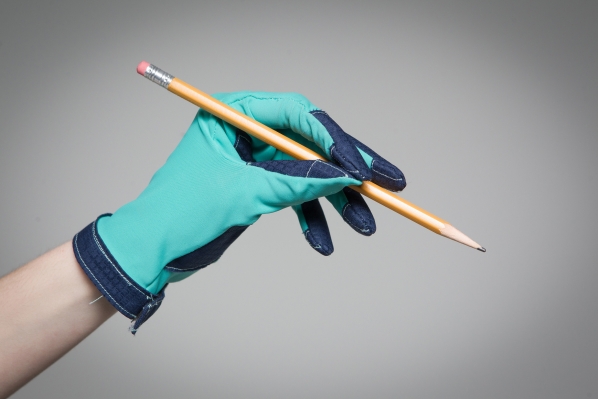BOONE—A design for a therapeutic glove that could help improve dexterity and grip strength for children and adults has resulted in a $15,000 award to an interdisciplinary team of Appalachian State University students.

Junior industrial design major Bailey Williams from Advance, designed and created a prototype for gloves with magnets in the finger tips as part of a design class in the Department of Technology and Environmental Design in the College of Fine and Applied Arts. Students in the class were challenged to design a product for a specific disability. Williams’ assignment was for 2- to 5-year olds with limited fine motor abilities.
While she initially wasn’t excited about the task, as Williams researched the challenges affecting the assigned demographic, she became more excited about its potential.
“First I had to do the research on what children’s fine motor skills were,” Williams said about the first step in her design process. “I found that children with dyspraxia can have impaired gross and fine-motor abilities. I felt passionate about those children who may have trouble getting dressed in the morning, feeding themselves or playing outside,” she said.
She designed a toothbrush and a spoon that might be easy to hold, which led to gloves that could help strengthen the hand.
Her design, called MagnaGrips, uses small magnets placed in the glove’s finger tips to mimic the pinching motion needed to grip or hold items.
Williams, an apparel minor, used her sewing skills to create samples of her design. The more people she shared the mock ups with, the more she learned of other potential users, such as stroke victims working to improve their grip and hand strength.
“The beauty of this product is that every time we show it to someone else they come up with 10 more ways it can be used,” said Williams, who consulted with an occupational therapist at Watauga Medical Center. “I was amazed that something so simple could be so helpful,” she said.
That’s what good design is about, said Kern Maass, an associate professor and coordinator of Appalachian’s industrial design program. “I tell students that if you design for the fringes, you solve for the masses,” he said of design methodology. “And that’s certainly true of Bailey’s project.”
After students in her industrial design class were invited to compete for a chance to enter the Texas Christian University’s Values and Ventures Business Plan Competition, Williams enlisted the help of senior Mary Oshana from Chicago, a family and consumer science and secondary education major, and senior finance and banking major Jason Capps of Asheville to develop and present a business plan.
Their plan was selected out of more than two dozen proposals from others in her industrial design class to take to Texas. Williams and her team were mentored for the competition by Erich Schlenker, managing director of the Transportation Insight Center for Entrepreneurship located in Appalachian’s Walker College of Business, as well as professors in the business college.

Their presentation won second place at the competition and a $15,000 award. Williams plans to use her portion of the winnings to take her product to market.
Since winning the competition, Williams has been busy exploring manufacturing and market outlets for her product. “If Erich hadn’t told us about the TCU competition, this would be just another idea in my sketchbook,” Williams said. “This has all been Cinderella like,” she said of the activity that has followed the April 11 competition.
Her therapeutic glove design has been protected by a provisional patent application filing thanks to assistance from Schlenker, mentor Art Thompson and patent attorneys with Womble Carlyle in Greensboro. Williams has also talked with Carolina Glove and Safety Company in Conover about manufacturing her product.
Schlenker said competitions, such as the one held at TCU, help students apply classroom knowledge to real-world applications. “When you take a concept out of the classroom, and in this case take it to a rehabilitation center at a hospital, a special-needs instructor at a high school and a mentor who has experience bringing product to market, it makes what they are learning in class real,” he said.
Williams is planning a Kickstarter campaign to help raise additional funds online to take her product to market, which would also keep her as sole owner of the company she has named Magna Pro Solutions.
“I definitely want to carry it forward and create a business out of it,” she said of the class project. “So many people came up to us at the business plan competition and told us how a family member could use this product in so many different ways. We really want get the gloves out to address those needs as soon as we can.”

